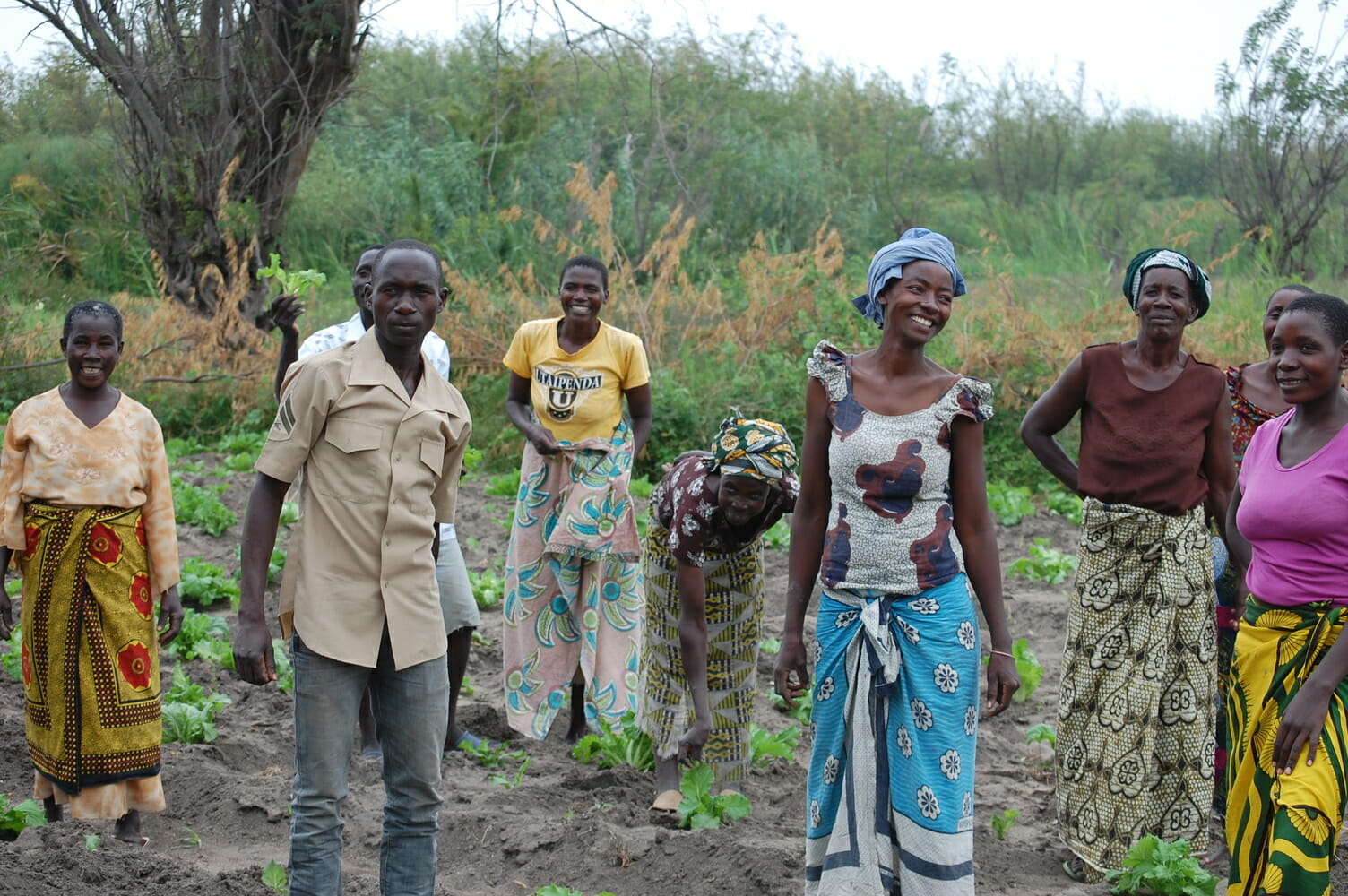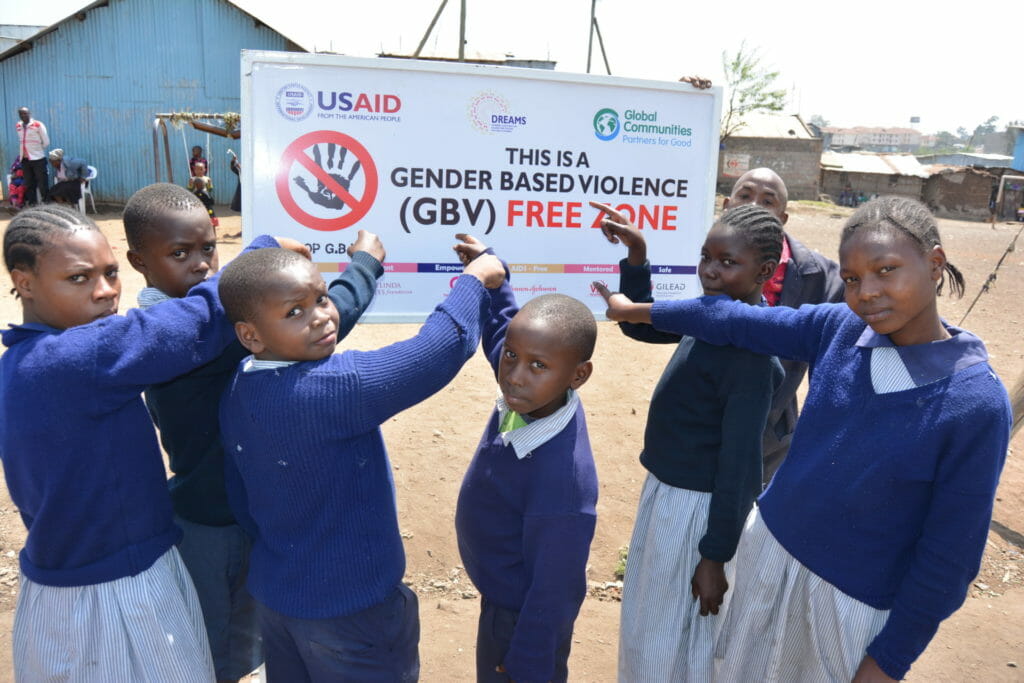The United Republic of Tanzania is one of Africa’s fastest-growing economies and is based heavily on agriculture, but with low agricultural productivity, almost half of its population lives below the poverty line. Since 2008, Global Communities has worked in Tanzania to improve health and nutrition, empower women as leaders and decision-makers, advance early childhood development and leverage technology innovations to create sustainable improvements in quality of life. Using community-focused approaches, we partner and collaborate with government, local communities and private sector partners to enable communities to empower themselves.
Given the country’s reliance on agriculture, Global Communities works with farmers to build capacity, utilize improved climate-smart techniques and increase their access to finance and markets. This boosts agricultural productivity, which in turn leads to increased incomes and more locally available nutritious foods.
We support farmers to partner with local schools to ensure students and families have access to nutritious foods through our school feeding programs, benefiting children, families farmers and the greater community. Tanzania’s wealth in natural resources and agricultural diversity present tremendous opportunities for livelihood improvement, family resilience and sustainability for future generations.
A highlight of our commitment to government partnership and transition to self-reliance is the recent development of the country’s first National School Feeding Guideline. Based on the success of our school feeding programs in the Mara Region, the Government of Tanzania requested our support to develop these guidelines. This represents a historical step in the country’s journey to achieving a National School Feeding Program that empowers quality and locally owned feeding programs nationwide.
Improving Student Health & Literacy through School Feeding
Our McGovern-Dole International Food for Education and Child Nutrition project in Tanzania is an integrated school feeding program funded by the U.S. Department of Agriculture (USDA) and implemented in close collaboration with the Government of Tanzania and many communities in the Mara Region. The project has enabled vast improvements in 231 primary schools through an integrated package of interventions to improve students’ literacy outcomes, enhance their overall educational performance and improve students’ health and nutrition practices. Since 2016, the project has been providing school meals to more than 200,000 students in the Mara Region.
Digitizing Women’s Savings Groups for Greater Financial Capabilities & Transparency
In 2019, Global Communities (then operating as PCI) partnered with DreamStart Labs to help design and field test a smartphone app called DreamSave to digitize the entire savings group process and Women Empowered group activities. Global Communities’ Women Empowered groups accelerate the social and economic empowerment of women through village savings, loan activities and skills acquisition to resolve social issues affecting women and girls. There are more than 600 Women Empowered groups based in the Mara Region and Arusha. DreamSave, which serves as a digital savings ledger, includes the ability to track each individual member’s savings progress, outstanding loans and any other fees or fines over the course of a savings cycle. The app can also build verified credit scores, enable groups and members to transfer funds to secure bank accounts, and includes features such as goal setting and tracking, automatic reminders, share-out projections and automatic calculations. Only one smartphone is required per group. Key findings indicated that by automating calculations, DreamSave reduced time spent on financial transactions. Use of the app has also led to greater transparency, fewer group conflicts about bookkeeping and an increase in financial capability among individual members. We are currently launching the rollout of DreamSave in Tanzania.
AfriScout: The Shepherd’s Eye in the Sky
AfriScout is revolutionizing the way pastoralists in Africa find pasture and water for their animals using the power of satellite and mobile technology. Developed by Global Communities (formerly PCI), the AfriScout mobile app provides pastoralists with current information on water and vegetation conditions using localized community grazing maps. This data helps them make more accurate and cost-effective migration decisions, improve pasture management and reduce the risk of herd loss. AfriScout has mapped 538,000 square miles of communal grazing lands in Kenya, Ethiopia and Tanzania, and has over 10,000 registered app users.
240,000+
students reached with school meals through our McGovern-Dole International Food for Education and Child Nutrition projects
100 million+
nutritious meals served to primary school students in Tanzania through our McGovern-Dole International Food for Education and Child Nutrition projects
231
schools with new or rehabilitated latrines or kitchens through our McGovern-Dole International Food for Education and Child Nutrition projects
231
libraries established, including mobile libraries and reading corners, through our McGovern-Dole International Food for Education and Child Nutrition projects
Recent Programs
Building Capacity for Sustainable, Locally Led School Feeding
From 2017-2021, the U.S. Department of Agriculture funded Global Communities to implement a Local and Regional Food Aid Procurement program called Chakula Chetu ("Our Food” in Swahili). This program complemented our McGovern-Dole program in Tanzania and built the capacity of 16 schools in Mara Region’s Butiama District to procure locally purchased foods for school meals. We also fostered a network of stakeholders (government leadership, market actors, schools, parents, farmers and communities) to build sustainable capacity for a complete transition to locally led school feeding. Throughout the program, Global Communities built or rehabilitated 16 school kitchens and provided over 2.7 million meals to ensure more than 14,000 students were provided with nutritious food to help them focus at school. (closed in 2021)
Increasing Access to Finance and Bolstering Trade for Small- and Medium-Sized Agribusinesses
From 2015-2020, Global Communities implemented the Agribusiness Investment for Market Stimulation (AIMS) program to bolster trade in key agricultural sectors in Kenya, Tanzania and Malawi by increasing access to financing, markets and capacity building for small- and medium-sized agribusinesses, including cooperatives and farmer-based organizations. AIMS was funded by the U.S. Department of Agriculture and included a $50 million loan guarantee facility backed by the Overseas Private Investment Corporation (OPIC). As a result of a cross-border Business to Business forum, which brings buyers and sellers together, agribusinesses in Malawi and Tanzania reached trade deals valued at $280 million per year, which are automatically renewable if service level is satisfactory. Participants included 45 agribusinesses from different levels of the grains value chain and service providers such as banks, insurance providers, policymakers and transporters. (closed in 2020)
Enabling Student Success through Healthy Meals & Improved Learning Environments
Since 2010, Global Communities (formerly PCI) has partnered with the U.S. Department of Agriculture's McGovern-Dole International Food for Education and Child Nutrition Program to increase attendance, improve literacy outcomes and enhance health and dietary practices for students in primary schools. From 2016-2021, Global Communities implemented the third phase of its McGovern-Dole project, called FFE III. This student-focused integrated school feeding project enhanced primary school learning outcomes and created sustainable community engagement through activities including the promotion of reading through libraries, reading clubs and talking walls; daily provision of nutritious school meals; climate-smart agriculture in school gardens and farms; health, hygiene and nutrition campaigns; and water, sanitation and hygiene interventions. The project served almost 35 million meals to over 225,000 students at 231 schools. We built or rehabilitated 52 latrines, 54 water systems and 75 kitchens, and contributed to the development of the National School Feeding Guideline, the Mara Regional School Feeding Strategy, and the National School Health Program Guide and Manual, which will soon be rolled out at the national and regional levels. (closed in 2021)
Engaging Fathers for Effective Child Nutrition and Development in Tanzania
In Tanzania’s Mara Region, undernutrition and inadequate stimulation are significant risk factors for poor early child growth and development outcomes. To address these needs, Global Communities (formerly PCI) and research partners — Harvard University, Purdue University and the Africa Academy of Public Health — developed an integrated nutrition and parenting implementation research study called Engaging Fathers for Effective Child Nutrition and Development in Tanzania (EFFECTS) to measure the effectiveness on child nutrition and development outcomes of bundled behavior change messages and activities that strengthen the capacity of mothers and fathers in providing optimal care for young children, including nutrition, responsive care, stimulation, and clean and safe home environments. This study, funded by the Eleanor Crook Foundation and Conrad N. Hilton Foundation, includes comprehensive and innovative metrics to track processes and document pathways from inputs to outcomes to understand best practices and key ingredients for effective male engagement and integration of nutrition and parenting interventions. This study concluded in February 2021 and results will be shared later this year.
Our Work in Tanzania
Expanding Economic Opportunity
Supporting Small and Medium-Sized Businesses and Community Savings and Lending Groups
Gender Equality & Social Inclusion
Lifting Marginalized Voices and Investing in Women as Leaders and Men as Allies
Health
Combating Disease, Improving Nutrition, and Ensuring Healthy Mothers, Children and Adolescents
Economic Opportunity
Advancing Job Training and Market Linkages for Sustainable Livelihoods
Resilience
Enhancing Food Security, Sustainable Agriculture and Water Management in Climate-Affected Communities
Sustainable Development
Standing with Communities as They Shape Their Own Future
Resources
Briefs & Case Studies
Program Brief: USDA Chakula Chetu Local and Regional Food Aid Procurement Program in Tanzania
In 2017, USDA funded a Local and Regional Food Aid Procurement (LRP) program, called Chakula Chetu, meaning Our Food in Swahili. Chakula Chetu complements Project Concern International (PCI), a Global Communities Partner’s McGovern-Dole program in Tanzania, FFE III. Emphasizing local capacity strengthening to promote long-term ownership and sustainability, Chakula Chetu delivers a cost-effective and timely…
Briefs & Case Studies
Program Brief: USDA McGovern-Dole FFE III Program in Tanzania
Since 2010, Project Concern International (PCI), a Global Communities Partner, has implemented integrated school feeding programs in Tanzania with funding from USDA’s McGovern-Dole International Food for Education (FFE) and Child Nutrition (McGovernDole) program. In 2016, PCI began the third phase of its McGovern-Dole project, called FFE III, which continues to be implemented with the Government…
Capacity Materials
Integrated School Feeding
Since 2001, Project Concern International, a Global Communities Partner (PCI) has served as a continual USDA partner and has implemented a total of 16 McGovern-Dole International Food for Education and Child Nutrition (McGovernDole) and three Local and Regional Procurement (LRP) programs, reaching over 1 million students. PCI’s integrated school feeding approach focuses on mobilizing and…
Briefs & Case Studies
Promoting a Fee-for-Service Business Advisory Services (BAS) Market for Agribusiness SMEs in East Africa
The Agribusiness Investment for Market Stimulation (AIMS) program was a seven-year USD 19 million program funded by the United States Department of Agriculture (USDA), which included a USD 50 million Loan Guarantee Facility (LGF) backed by the Overseas Private investment Corporation (OPIC). AIMS utilized a market systems approach to support agribusiness small and medium enterprises…
NEWS
Latest stories from the blog
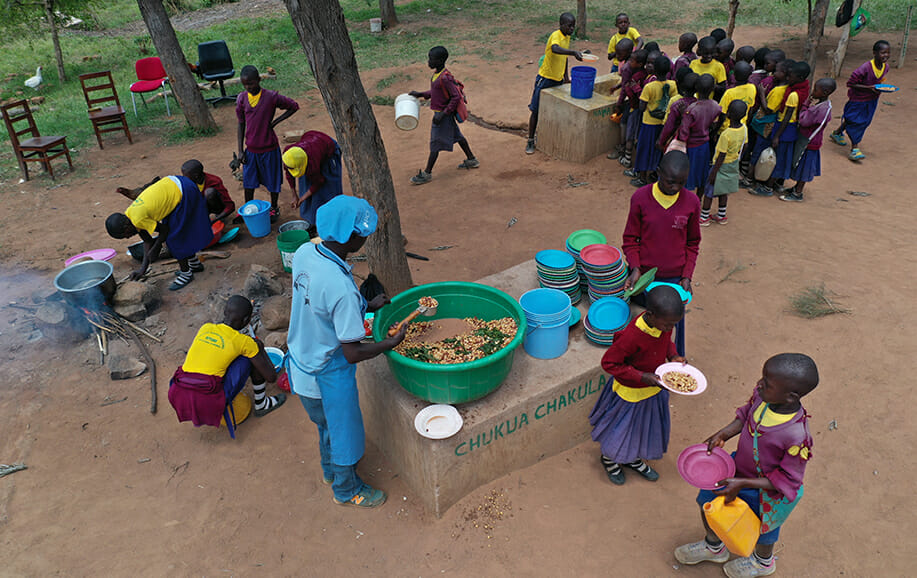
Strengthening School Feeding Systems in Tanzania
For the past 10 years, PCI, a Global Communities Partner, has implemented integrated school feeding programs that help deliver essential nutrition, education, health and development …
Read More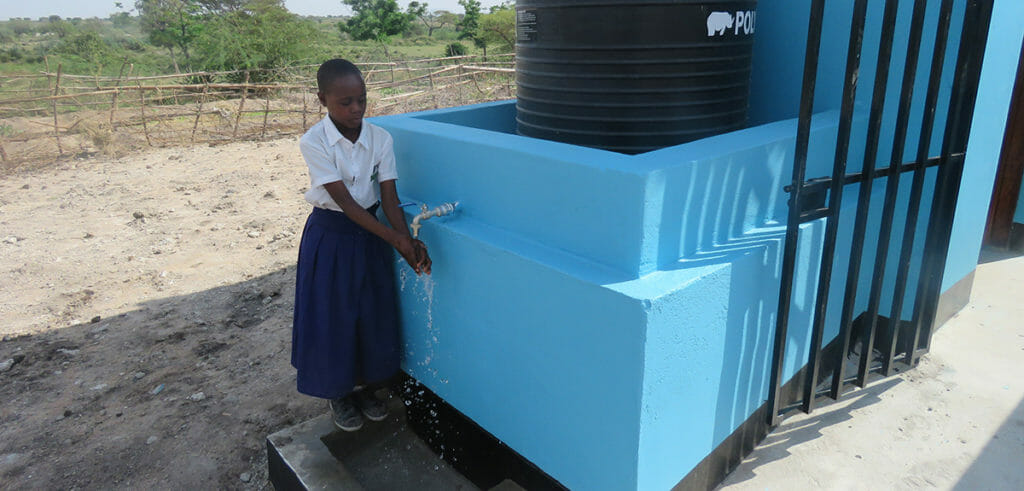
School WASH Protects Students and Promotes Healthy Learning
Almost half of schools worldwide have no hand-washing facilities and around one-third of schools do not have safe water supplies or adequate sanitation (WHO/Unicef 2020). …
Read More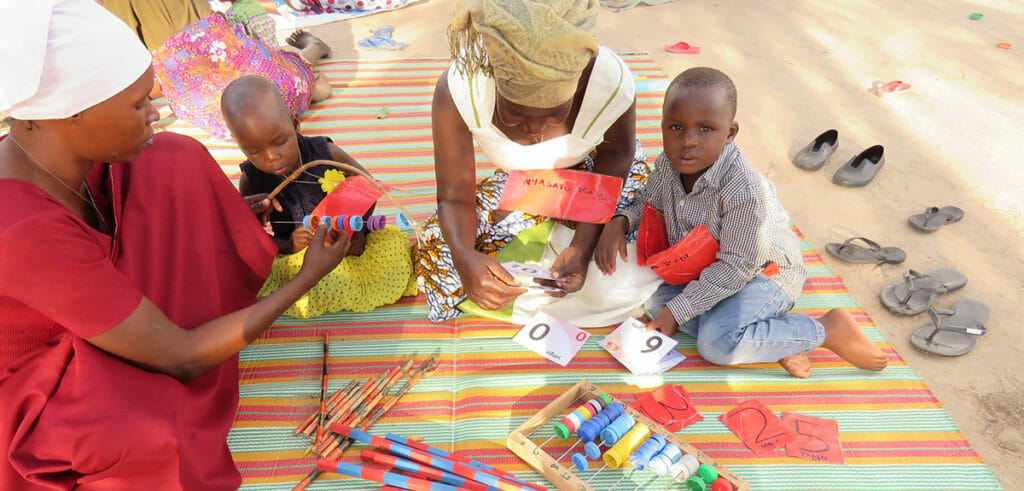
Nurturing Tanzania’s Future through Early Childhood Development
Many parents, guardians and caregivers want to ensure their children have the building block skills needed for success in school and in life. To promote …
Read More
